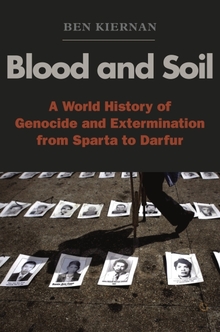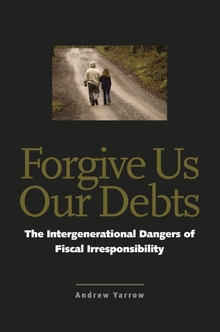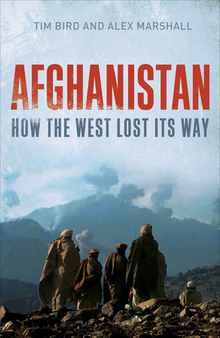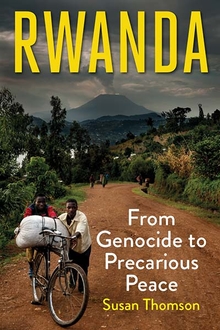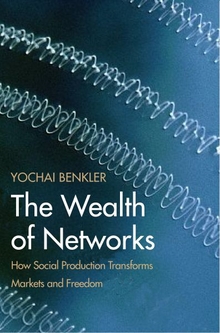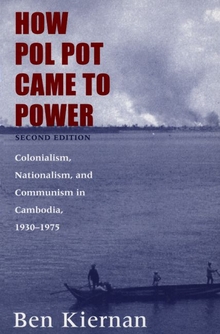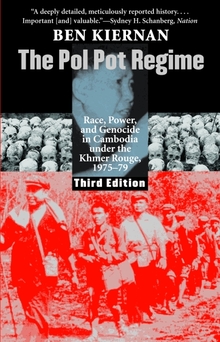Blood and Soil
WARNING
You are viewing an older version of the Yalebooks website. Please visit out new website with more updated information and a better user experience: https://www.yalebooks.com
A World History of Genocide and Extermination from Sparta to Darfur
Ben Kiernan
Out of Print
Click here for an extended question & answer discussion with the author
A book of surpassing importance that should be required reading for leaders and policymakers throughout the world
For thirty years Ben Kiernan has been deeply involved in the study of genocide and crimes against humanity. He has played a key role in unearthing confidential documentation of the atrocities committed by the Khmer Rouge. His writings have transformed our understanding not only of twentieth-century Cambodia but also of the historical phenomenon of genocide. This new book—the first global history of genocide and extermination from ancient times—is among his most important achievements. Kiernan examines outbreaks of mass violence from the classical era to the present, focusing on worldwide colonial exterminations and twentieth-century case studies including the Armenian genocide, the Nazi Holocaust, Stalin’s mass murders, and the Cambodian and Rwandan genocides. He identifies connections, patterns, and features that in nearly every case gave early warning of the catastrophe to come: racism or religious prejudice, territorial expansionism, and cults of antiquity and agrarianism. The ideologies that have motivated perpetrators of mass killings in the past persist in our new century, says Kiernan. He urges that we heed the rich historical evidence with its telltale signs for predicting and preventing future genocides.
Ben Kiernan is the A. Whitney Griswold Professor of History, professor of international and area studies, and the founding director of the Genocide Studies Program at Yale University (www.yale.edu/gsp). His previous books include How Pol Pot Came to Power: Colonialism, Nationalism, and Communism in Cambodia, 1930–1975 and The Pol Pot Regime: Race, Power, and Genocide in Cambodia under the Khmer Rouge, 1975-1979, published by Yale University Press.
"In exploring the global 'prehistory' of the horrific forms of societal violence usually associated with the twentieth century, Kiernan identifies key factors that have been consistently associated with genocidal episodes. His book makes an original contribution to our understanding of the phenomenon."—Michael Adas, Rutgers University
"Ben Kiernan’s Blood and Soil is a major work explaining myths and metaphors that have underwritten genocide for six hundred years—earlier within the bowels of the western tradition; now commonplace practice far beyond that tradition. In seeing genocide as linked to issues of land as well as race, nation, and expansion, Kiernan has opened up social, political, and economic analysis to the struggle for land and the control of property. Such an approach is unique as it is provocative. It is inspired by the author’s profound reading of Cambodia and Southeast Asia. Blood and Soil provides an angle of vision rarely found in those who start (and stop) with a European base of scholarship. The book opens up new questions and formulations on the nature of state inspired murder. It merits a close reading of the dark side of terror, often commented upon, but rarely probed."—Irving Louis Horowitz,
Rutgers University
"Blood and Soil is a stunning achievement. The idea for the project was clearly a prompting of the heart, but the argument itself is a thing of pure intellect. It surveys thousands of years, visits every corner of the world, and stares with scarcely a blink at the worst horrors the world has ever known. As an act of scholarship, it simply stands alone."—Kai Erikson, Yale University
Sparta to Darfur, Blood and Soil is a well-researched, detailed account of many instances of mass killings and the reasons for their occurrence. It will no doubt give rise to controversy, new research, and new insights."—Yehuda Bauer, Yad Vashem
"Ben Kiernan's Blood and Soil, a meticulous new study of this most slippery of criminal categories . . . highlights the contrast between our conventional and our legalistic definition of genocide by choosing case studies that, with few exceptions, attain the highest standard of vileness. . . . The chapters on the least known of the genocides offer particular value as introductions to overlooked regional histories, and the material on the Nazis and Ottoman Turks nicely situate both those groups within larger contexts of ethnic violence. Each case is written sharply enough to escape the aroma of potted history that sometimes afflicts comparative studies of this type."—Graeme Wood, New York Sun
"Ben Kiernan has provided the most extensive history of our genocidal propensities that I have ever read. He starts his history early, with Roman and Greek massacres of barbarians, and works through the Spanish conquest of the Americas, the exterminating vigor of American settlers toward Indians, the Turkish way with the Armenians, the German way with the Jews, Stalin's way with the Ukrainians, the Khmer Rouge's way with the Cambodians, the Serbs' way with the Muslims, the Hutus' way with the Tutsis, and the Sudanese way with the Darfurians. If you want to know how it was done, where and when it was done, and how many victims there were, Kiernan has the answers. This is a formidable and important book."—Michael Ignatieff, New Republic
New York Review of Books
"To learn from the tragedies and mistakes of the past . . . [is] an idea central to Ben Kiernan's massive Blood and Soil. . . . Kiernan details not only the Armenian genocide but also the numerous mass murders that took place before and since in eras and regions synonymous with the terrible events that line our history books. . . . Kiernan's explorations of genocide in the 19th-century Australian Outback and the formative years of East and Southeast Asia illuminate periods of genocidal history often overshadowed by the more mechanized and publicized mass killings of the 20th century. . . . The personalized accounts of witnesses remind us—as all worthwhile studies of human disaster should—of the individual human lives underneath all these millennia of collective death and destruction."—Zak M. Salih, Baltimore City Paper
"Lucidly unsettling. . . . Kiernan doesn't flinch from politically incorrect diagnoses of any stripe."—Matthew Kaminski, Yale Alumni Magazine
"Kiernan has put a prodigious amount of research into this book, particularly on the colonial massacres, andhe has made a significant contribution to an increasingly important debate."—Tim Johnson, The Australian
"Kiernan, an expert on the mass murders in Cambodia, covers much of the territory from ancient Greece and Rome to modern Iraq, describing in sober prose the efforts of human beings to exterminate their fellows. Why do we do it? . . . Kiernan’s four reasons recur with deadening frequency."—David Konstan, Common Knowledge
"A major, provocative contribution to Genocide Studies . . . and to fields ranging beyond it. The result of extensive research and deep reflection, it challenges scholars of genocide with its bold theses; delivers a laudably inclusive inventory of genocidal violence spanning many centuries; and represents a powerful example of a well-synthesized world history, one that will be highly valuable for scholarly as well as non-academic audiences. . . . A trailblazing work . . . numerous startling revelations leap from the grim pages . . . Blood and Soil is unsurpassed among works of this nature in examining and uncovering the ideological and philosophical, as well as cultural and political, underpinnings of genocide . . . [W]e owe Kiernan a large debt for proposing this bold, richly suggestive theory, which is already exerting a strong influence."—John M. Cox, H-German, H-Net Reviews
"This meticulously researched and voluminous book represents a first of sorts. It is the first synthetic, single-authored global history to connect state power and formation to violence through the willful extermination and attempted extermination of peoples. Its reach is not only global, it is alsotemporal, as the book examines violence through time. . . . [T]his work will be essential not only to genocide scholars, but also to historians and regional specialists. . . . Kiernan absolutely shines in some ways as a historian of ideas [and] does an exemplary job of tracing the justificatory texts. . . . Kiernan's synthesis of this material is most impressive. . . . When one reads this book, there will be conceptual and empirical quarrels, but they do not overshadow the success and tremendous value of this book."—Journal of Asian Studies
". . . the first synthetic, single-authored global history to connect state power and formation to violence through the willful extermination and attempted extermination of peoples. Its reach is not only global, it is also temporal, as the book examines violence through time."—Journal of Asian Studies
"[S]triking for its breadth . . . a work without real equivalent (by a single author in any case) . . . one would hope that this tour de force is translated into French."—Sociétal
Publication Date: September 25, 2007
38 b/w illus. + 31 maps

